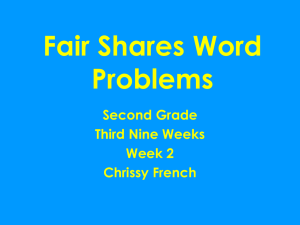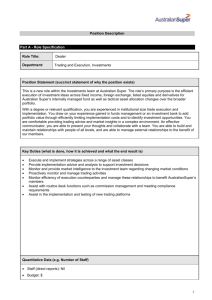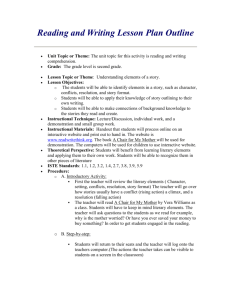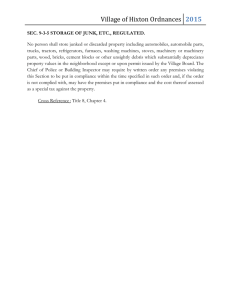SALE OF LIQUOR YOUTH ALCOHOL HARM REDUCTION
advertisement
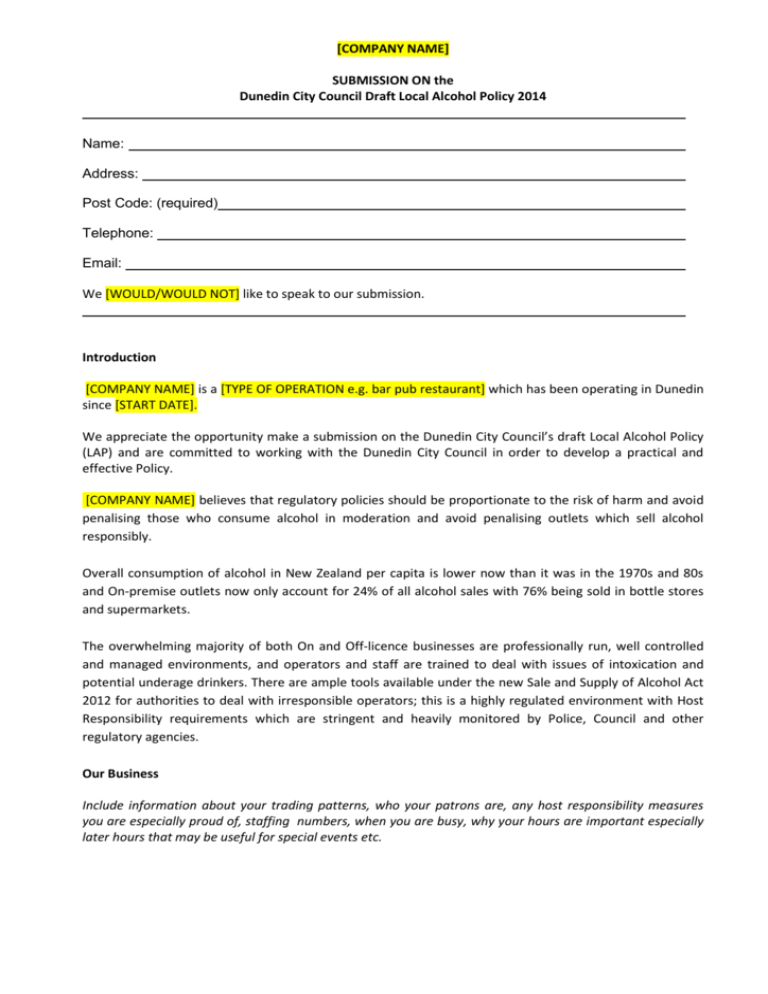
[COMPANY NAME] SUBMISSION ON the Dunedin City Council Draft Local Alcohol Policy 2014 Name: Address: Post Code: (required) Telephone: Email: We [WOULD/WOULD NOT] like to speak to our submission. Introduction [COMPANY NAME] is a [TYPE OF OPERATION e.g. bar pub restaurant] which has been operating in Dunedin since [START DATE]. We appreciate the opportunity make a submission on the Dunedin City Council’s draft Local Alcohol Policy (LAP) and are committed to working with the Dunedin City Council in order to develop a practical and effective Policy. [COMPANY NAME] believes that regulatory policies should be proportionate to the risk of harm and avoid penalising those who consume alcohol in moderation and avoid penalising outlets which sell alcohol responsibly. Overall consumption of alcohol in New Zealand per capita is lower now than it was in the 1970s and 80s and On-premise outlets now only account for 24% of all alcohol sales with 76% being sold in bottle stores and supermarkets. The overwhelming majority of both On and Off-licence businesses are professionally run, well controlled and managed environments, and operators and staff are trained to deal with issues of intoxication and potential underage drinkers. There are ample tools available under the new Sale and Supply of Alcohol Act 2012 for authorities to deal with irresponsible operators; this is a highly regulated environment with Host Responsibility requirements which are stringent and heavily monitored by Police, Council and other regulatory agencies. Our Business Include information about your trading patterns, who your patrons are, any host responsibility measures you are especially proud of, staffing numbers, when you are busy, why your hours are important especially later hours that may be useful for special events etc. Trading Hours On-Licence Premises The draft policy proposes a latest closing hour of 3am for the inner city. It would be foolish for anyone to assume that at 3am those people who previously chose to stay our later will simply go home to bed. The earlier the closing hour of supervised environments the far more likely the potential for unsupervised parties elsewhere to cause problems. There is a well-documented natural rhythm to people’s behaviour late at night whereby people dance and socialise and their drinking slows down. This leads to a natural progressive lessening of the numbers as people gradually go home. Closing all bars at 3am means that far more people will be out on the streets en masse than there are presently at 4am. This leads to a problem identified overseas as ‘peak density‘ whereby the sudden influx causes problems with disorder, especially at flashpoints such as fast food premises, and issues with public transport and safety. The suggestion of shorter trading hours causing less consumption and therefore less harm is negated by a simple look at the situation in New Zealand over the past 30 years. In the mid-eighties our consumption of alcohol per head of population was much higher than it is today, while the number of licences was at about a third and the hours were far shorter. Shorter hours for on licences simply does not lead to less consumption in total, all it does is drive people to drink in unsupervised environments where there is far more probability of harm. We submit the Council should retain the national default hours of 8am to 4am as determined by parliament. Trading Hours in or adjacent to residential areas The draft policy suggests a latest closing time of 11pm or midnight depending on the day of the week for residential areas. There is a very strong position for encouraging people to stay close to home when enjoying a night out. While most suburban venues would not use the later hour all the time allowing a closing time of 1am would give them the ability to cater for special events such as screening late running overseas rugby matches and functions without the requirement to go through the increasingly expensive and bureaucratic process of obtaining a special licence. Trading Hours in outside areas The policy suggests the hour of 11pm as the latest trading hour available for all outdoor areas. This is an unusually early hour to adopt as a blanket policy position. Outdoor areas are most usually used late at night by smokers who will continue to go outside whether there is a licensed area or not. If they are not within licensed premises then they are in a less controlled environment. Trading Hours Off-Licence premises We are comfortable with the maximum trading hours proposed for off-licensed premises of 7am to 10pm provided that they are applied consistently across all off-licensed premises. OR The national default trading hours for off-licence premises as set down by parliament provide hours of 7am -11pm. We see no rationale for closing the off-licences in Dunedin one hour earlier than this – there is no evidence to prove this will reduce harm and it will only inconvenience customers. Problematic drinkers will have stocked up long before this hour but it will prevent people coming home late from stopping to purchase a bottle of wine. One Way Doors One-way doors were trialled widely in Australia and have been largely abandoned because they did not work. Most experts agree they are symbolic at best and problematic at worst. Experience shows that these policies result in a significant rise in tension with people trying to get into bars after the nominated time and those inside trying to stay and drink for as long as they possibly can. There is potential for conflict between those seeking admission and door staff. There are potential safety issues for those separated from their friends. There are serious cost implications for bars that do not currently require door staff but who will need to employ them. They exclude shift workers, hospitality staff and entertainment staff who finish work at 1am or later from having a quiet wind down drink after work. In addition those not allowed into bars are likely to drink in public places, move to venues where there is no supervision, or party at home. No Shots after Midnight The draft policy suggests that no ‘shots’ will be allowed to be sold after midnight. This suggestion is fraught with practical difficulties. While a shot may not be served, what is the position if a customer would like a single spirit in a short glass with no ice? Why single out a shot often served in a 22 or 25ml glass as opposed to a cocktail or a double (30ml) spirit with a splash of soda? In addition to these operational problems it is already illegal for a sale to be made to someone who is intoxicated. There are severe penalties under the Sale and Supply of Alcohol Act for those licensees and staff who do so. This clause while looking attractive from a presentational perspective will be impossible to implement and will make no material difference to those who wish to drink problematically or to alcohol related harm. Single Bottle Sales We understand that the Council’s concern in proposing this measure will relate to the issue of side-loading. However do not believe that the single unit restriction is the right tool. Leaving to one side the non-existent evidence base, the logic of the proposition itself is flawed. The rationale for the single unit restriction is that it provides a price disincentive that will in some way reduce harm. However the price differential between a single unit of lower priced beer, cider or RTD is unlikely to provide a sufficient disincentive to an irresponsible consumer. Research shows that harmful users are in fact the most price inelastic. The most likely scenario is that instead of buying a single unit, a potentially harmful consumer will buy more than one. So, far from being a disincentive from purchase, the policy will actually drive the purchase of larger volumes of alcoholic beverages or a beverage with a higher alcohol volume. There is also the question of what is “boutique or hand crafted””. Where, for example, would a special or premium production run of a “mainstream” brand sit? A single unit restriction is also riven with potential inconsistencies in its operation. Why, for example, should two units of 220mls each be treated differently from a single unit of 440mls? Why should a 185 ml piccolo of wine be treated differently? Why should companies who produce larger quantities be disadvantaged over smaller companies? In summary, there are a host of sound reasons why a single unit restriction is not an appropriate policy for a LAP and no convincing reasons why it should be implemented. Conclusion [COMPANY NAME] thanks the Dunedin City Council for the opportunity to submit on this proposal. We want to see a sensible and effective Local Alcohol Policy that reflects the Council’s responsibilities to the community and to local businesses.




